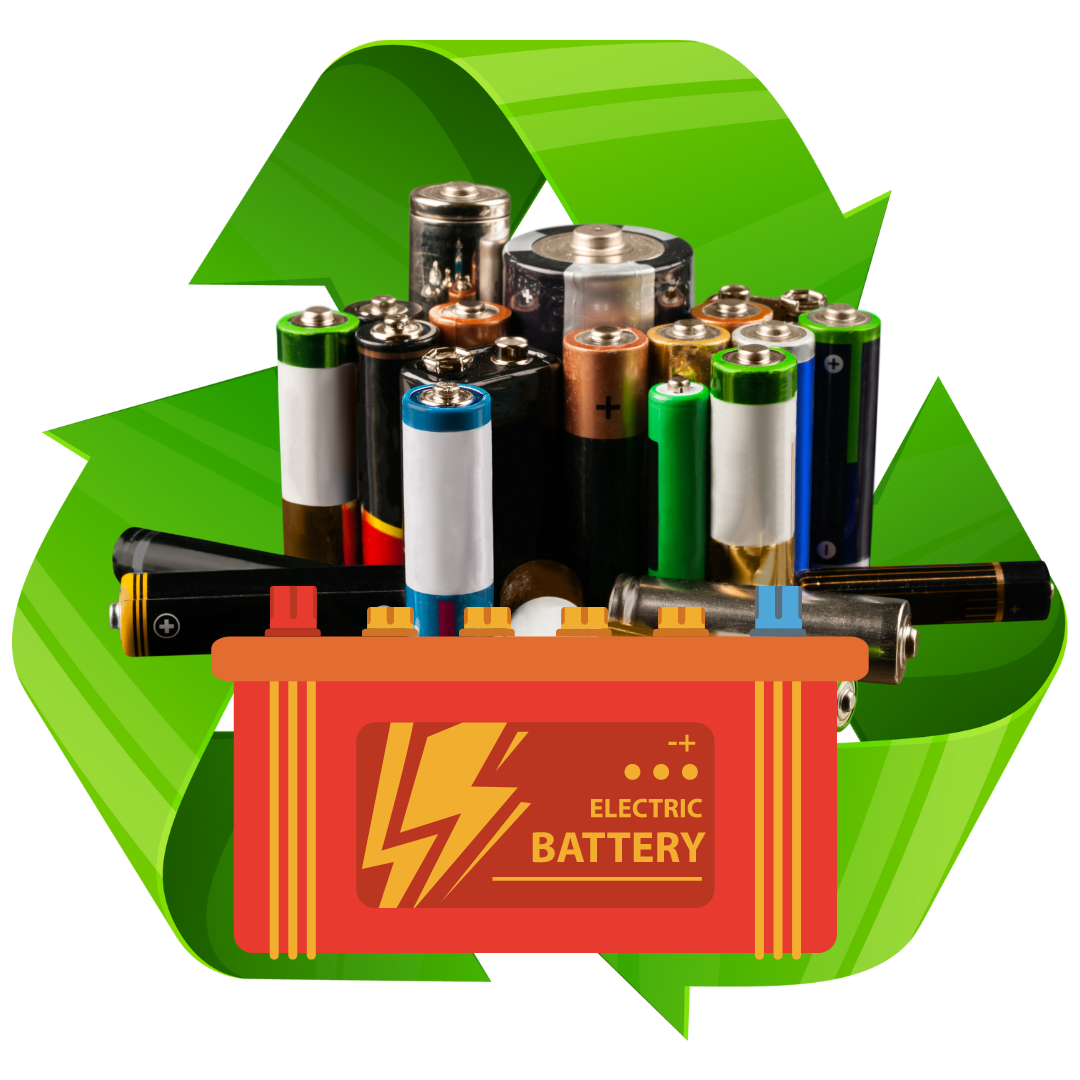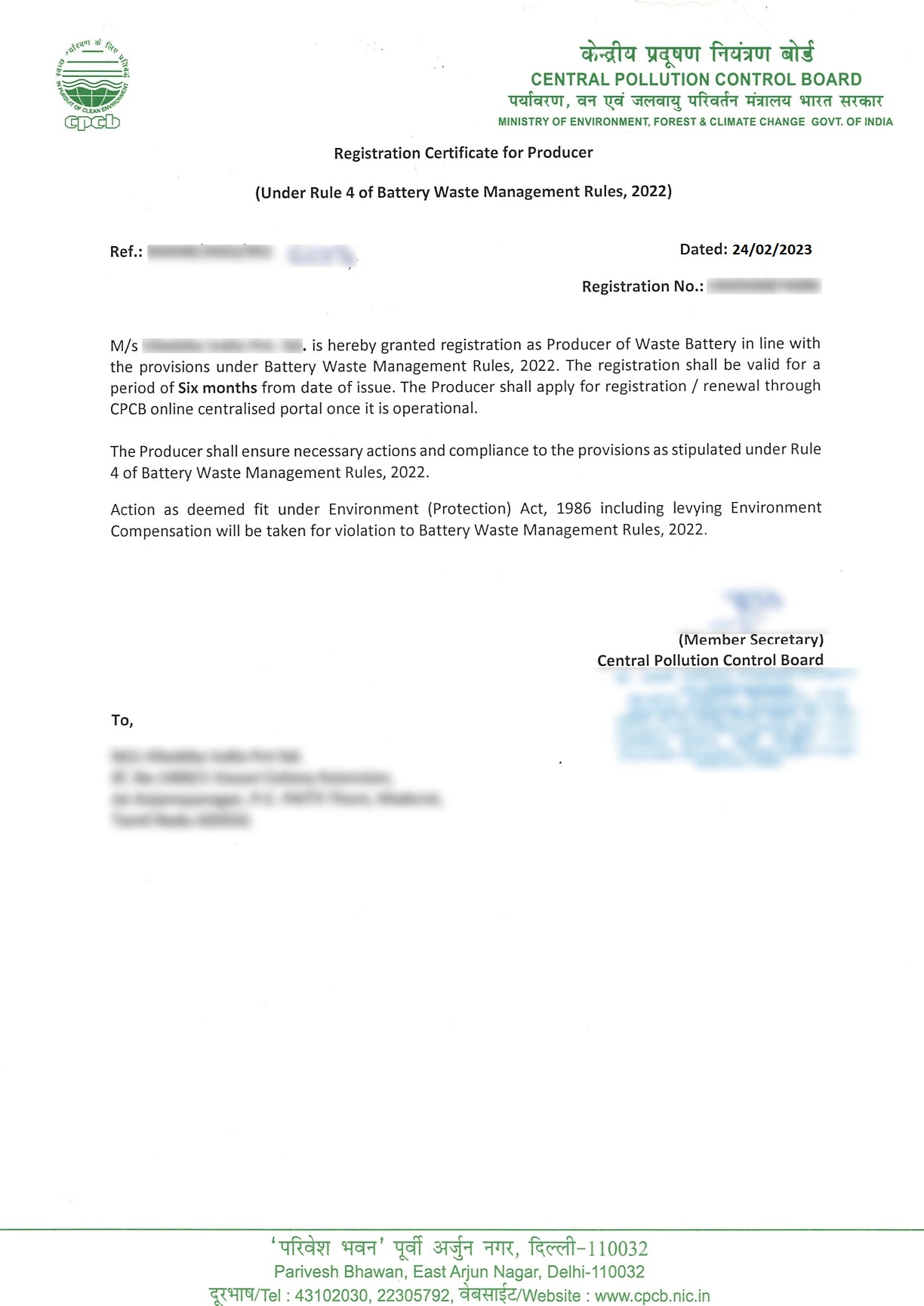Extended Producer Responsibility (EPR) Authorization for battery waste is a significant regulatory approach designed to promote environmental sustainability and proper management of used batteries. EPR is a concept in which manufacturers, importers and producers of batteries are held responsible for their products' entire lifecycle, from production to disposal. This means that they are legally obligated to take measures to ensure that used batteries are collected, recycled and disposed of in an environmentally responsible manner.
Battery waste, especially from disposable and rechargeable batteries, can pose serious environmental hazards due to the presence of toxic chemicals and heavy metals. To establish eco-friendly handling of discarded batteries, the Ministry of Environment, Forests, and Climate Changes issued the Battery Waste Management Rules, 2022, replacing the earlier Battery (Management & Handling) Rules, 2001, on August 22, 2022.

EPR Authorization for battery waste typically involves setting up collection systems, recycling facilities and safe disposal methods for end-of-life batteries. Manufacturers and importers must fund and organize the collection and recycling of these batteries, which helps reduce the environmental impact and promotes the conservation of valuable resources.
EPR Authorization for battery waste is an essential component of a sustainable waste management system, reducing the burden on public waste management infrastructure and preventing the contamination of landfills. It encourages producers to design more environmentally friendly and longer-lasting batteries, as they now bear the responsibility for the entire product life cycle.
The Battery Waste Management (BWM) Rules of 2022 require meticulous adherence to various protocols aimed at regulating the proper management and disposal of batteries. As per Rule 4 of the BWM Rules 2022, all Producers and entities engaged in battery manufacturing must register with the Central Pollution Control Board (CPCB) via a centralized online portal. The application process involves the submission of Form 1(A) to the CPCB, with producers required to apply for registration renewal in the same format before sixty days from the expiry of the registration.
The scope of these rules extends to entities that manufacture, sell, and import batteries, including refurbished ones, either under their own brand or through other manufacturers or suppliers. The key principle governing the BWM Rules is Extended Producer Responsibility (EPR), placing the onus on battery producers to manage waste batteries in an environmentally sustainable manner, including their collection, recycling, and refurbishment.
Refurbishers and recyclers also fall under the purview of the BWM Rules and must register with the State Pollution Control Board through the centralized portal, ensuring compliance with regulatory requirements. These entities are obliged to submit quarterly returns, outlined in Form 4, detailing the quantities of used batteries collected, the volume of refurbished and recycled batteries, and the amount of hazardous and other waste generated during the refurbishment and disposal processes. The comprehensive guidelines aim to streamline the process of battery waste management and promote environmentally responsible practices within the industry.


EPR Authorization for battery waste is important for manufacturers operating in the Indian market in several ways:
Brand Liaison specializes in guiding manufacturers through the EPR Registration process for battery waste. With our expertise, you can obtain the EPR Registration Certificate seamlessly.
The list of documents required for EPRA for battery waste is as follows:
Follow the given steps to complete your EPR Registration process for battery waste:
Step 1: Compile all necessary information and documents
Step 2: Submit the application to CPCB, including the prescribed form via mail and a hard copy with all required documents
Step 3: CPCB reviews the submitted application to ensure compliance with the necessary requirements
Step 4: Upon successful completion of the application review, CPCB will grant the EPR registration certificate

Costing for EPRA for Battery Waste
Please reach out to our team and provide your product details so that we can offer you a personalized quotation for the cost of EPR Authorization for battery waste.
Contact information: +91-9250056788 or +91-8130856678
Timeline for EPRA for Battery Waste
25-30 working days
The validity of EPR Authorization for battery waste is 5 years and it can be extended subsequently. To renew it, you will be required to submit certain documents and pay the applicable fees.
Brand Liaison India Private Limited is a leading service provider in the field of BIS/CRS, BIS/ISI, EPR P, E & Batteries Waste, WPC, etc, approvals, authorization, and certifications. Completed a 10 years journey in the market and have worked for numerous clients with the highest success ratio in the industry.
Our team of experts is well experienced and skilled to assist you in the whole process from documentation to filling and Support to Final Approval. Our experts will ensure the hassle-free process of all the legalities & formalities.